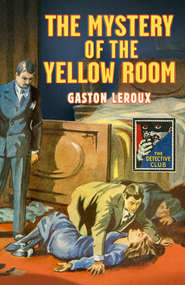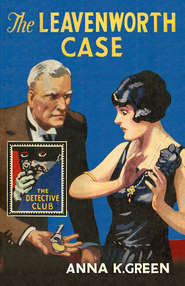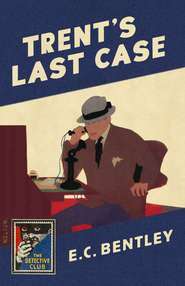По всем вопросам обращайтесь на: info@litportal.ru
(©) 2003-2024.
✖
The Pit-Prop Syndicate
Автор
Год написания книги
2019
Настройки чтения
Размер шрифта
Высота строк
Поля
‘It wasn’t forty-anything, you old blighter,’ he said good-humouredly. ‘It was 4 on the road, and 3 at the mill, and I’m as sure of it as that you’re an amiable imbecile.’
‘Inconclusive,’ murmured Jelfs, ‘entirely inconclusive. But,’ he persisted, ‘you must not hold back material evidence. You haven’t told us yet what you had at lunch.’
‘Oh, stow it, Jelfs,’ said Hilliard, a thin-faced, eager looking young man who had not yet spoken. ‘Have you no theory yourself, Merriman?’
‘None. I was completely puzzled. I would have mentioned it before only it seemed to be making a mountain out of nothing.’
‘I think Jelf’s question should be answered, you know,’ Drake said critically, and after some more good-natured chaff the subject dropped.
Shortly after one of the men had to leave to catch his train, and the party broke up. As they left the building Merriman found Hilliard at his elbow.
‘Are you walking?’ the latter queried. ‘If so I’ll come along.’
Claud Hilliard was the son of a clergyman in the Midlands, a keen, not to say brilliant student who had passed through both school and college with distinction, and was already at the age of eight-and-twenty making a name for himself on the headquarters staff of the Customs Department. His thin, eager face, with its hooked nose, pale blue eyes and light, rather untidy looking hair, formed a true index of his nimble, somewhat speculative mind. What he did, he did with his might. He was keenly interested in whatever he took up, showing a tendency, indeed, to ride his hobbies to death. He had a particular penchant for puzzles of all kinds, and many a knotty problem brought to him as a last court of appeal received a surprisingly rapid and complete solution. His detractors, while admitting his ingenuity and the almost uncanny rapidity with which he seized on the essential facts of a case, said he was lacking in staying power, but if this were so, he had not as yet shown signs of it.
He and Merriman had first met on business, when Hilliard was sent to the wine merchants on some matter of Customs. The acquaintanceship thus formed had ripened into a mild friendship, though the two had not seen a great deal of each other.
They passed up Coventry Street and across the Circus into Piccadilly. Hilliard had a flat in a side street off Knightsbridge, while Merriman lived farther west in Kensington. At the door of his flat Hilliard stopped.
‘Come in for a last drink, won’t you?’ he invited. ‘It’s ages since you’ve been here.’
Merriman agreed, and soon the two friends were seated at another open window in the small, but comfortable sitting-room of the flat.
They chatted for some time, and then Hilliard turned the conversation to the story Merriman had told in the club.
‘You know,’ he said, knocking the ash carefully off his cigar, ‘I was rather interested in that tale of yours. It’s quite an intriguing little mystery. I suppose it’s not possible that you could have made a mistake about those numbers?’
Merriman laughed.
‘I’m not exactly infallible, and I have, once or twice in my life, made mistakes. But I don’t think I made one this time. You see, the only question is the number at the bridge. The number at the mill is certain. My attention was drawn to it, and I looked at it too often for there to be the slightest doubt. It was No. 3 as certainly as that I’m alive. But the number at the bridge is different. There was nothing to draw my attention to it, and I only glanced at it casually. I would say that I was mistaken about it only for one thing. It was a black figure on a polished brass ground, and I particularly remarked that the black lines were very wide, leaving an unusually small brass triangle in the centre. If I noticed that, it must have been a 4.’
Hilliard nodded.
‘Pretty conclusive, I should say.’ He paused for a few moments, then moved a little irresolutely. ‘Don’t think me impertinent, old man,’ he went on with a sidelong glance, ‘but I imagined from your manner you were holding something back. Is there more in the story than you told?’
It was now Merriman’s turn to hesitate. Although Madeleine Coburn had been in his thoughts more or less continuously since he returned to town, he had never mentioned her name, and he was not sure that he wanted to now.
‘Sorry I spoke, old man,’ Hilliard went on. ‘Don’t mind answering.’
Merriman came to a decision.
‘Not at all,’ he answered slowly. ‘I’m a fool to make any mystery of it. I’ll tell you. There is a girl there, the manager’s daughter. I met her in the lane when I was following the lorry, and asked her about petrol. She was frightfully decent; came back with me and told her father what I wanted, and all that. But, Hilliard, here’s the point. She knew! There’s something, and she knows it too. She got quite scared when that driver fixed me with his eyes, and tried to get me away, and she was quite unmistakably relieved when the incident passed. Then later her father suggested she should see me to the road, and on the way I mentioned the thing—said I was afraid I had upset the driver somehow—and she got embarrassed at once, told me the man was shell-shocked, implying that he was queer, and switched off on to another subject so pointedly I had to let it go at that.’
Hilliard’s eyes glistened.
‘Quite a good little mystery,’ he said, ‘I suppose the man couldn’t have been a relation, or even her fiancé?’
‘That occurred to me, and it is possible. But I don’t think so. I believe she wanted to try to account for his manner, so as to prevent me smelling a rat.’
‘And did she not account for it?’
‘Perhaps she did, but again I don’t think so. I have a pretty good knowledge of shell-shock, as you know, and it didn’t look like it to me. I don’t suggest she wasn’t speaking the truth. I mean that this particular action didn’t seem to be so caused.’
There was silence for a moment and then Merriman continued:
‘There was another thing which might bear in the same direction, or again it may only be my imagination—I’m not sure of it. I told you the manager appeared just in the middle of the little scene, but I forgot to tell you that the driver went up to him and said something in a low tone, and the manager started and looked at me and seemed annoyed. But it was very slight and only for a second; I would have noticed nothing only for what went before. He was quite polite and friendly immediately after, and I may have been mistaken and imagined the whole thing.’
‘But it works in,’ Hilliard commented. ‘If the driver saw what you were looking at and your expression, he would naturally guess what you had noticed, and he would warn his boss that you had tumbled to it. The manager would look surprised and annoyed for a moment, then he would see he must divert your suspicion, and talk to you as if nothing had happened.’
‘Quite. That’s just what I thought. But again, I may have been mistaken.’
They continued discussing the matter for some time longer, and then the conversation turned into other channels. Finally the clocks chiming midnight aroused Merriman, and he got up and said he must be going.
Three days later he had a note from Hilliard.
‘Come in tonight about ten if you are doing nothing,’ it read. ‘I have a scheme on, and I hope you’ll join in with me. Tell you when I see you.’
It happened that Merriman was not engaged that evening, and shortly after ten the two men were occupying the same arm-chairs at the same open window, their glasses within easy reach and their cigars well under way.
‘And what is your great idea?’ Merriman asked when they had conversed for a few moments. ‘If it’s as good as your cigars, I’m on.’
Hilliard moved nervously, as if he found a difficulty in replying. Merriman could see that he was excited, and his own interest quickened.
‘It’s about that tale of yours,’ Hilliard said at length. ‘I’ve been thinking it over.’
He paused, as if in doubt. Merriman felt like Alice when she had heard the mock-turtle’s story, but he waited in silence, and presently Hilliard went on.
‘You told it with a certain amount of hesitation,’ he said. ‘You suggested you might be mistaken in thinking there was anything in it. Now I’m going to make a suggestion with even more hesitation, for it’s ten times wilder than yours, and there is simply nothing to back it up. But here goes all the same.’
His indecision had passed now, and he went on fluently and with a certain excitement.
‘Here you have a trade with something fishy about it. Perhaps you think that’s putting it too strongly; if so, let us say there is something peculiar about it; something, at all events, to call one’s attention to it, as being in some way out of the common. And when we do think about it, what’s the first thing we discover?’
Hilliard looked inquiringly at his friend. The latter sat listening carefully, but did not speak, and Hilliard answered his own question.
‘Why, that it’s an export trade from France to England—an export trade only, mind you. As far as you learnt, these people’s boat runs the pit-props to England, but carries nothing back. Isn’t that so?’
‘They didn’t mention return cargoes,’ Merriman answered, ‘but that doesn’t mean there aren’t any. I did not go into the thing exhaustively.’
‘But what could there be? What possible thing could be shipped in bulk from this country to the middle of a wood near Bordeaux? Something, mind you, that you, there at the very place, didn’t see. Can you think of anything?’
‘Not at the moment. But I don’t see what that has to do with it.’
‘Quite possibly nothing, and yet it’s an interesting point.’
‘Don’t see it.’
‘Well, look here. I’ve been making inquiries, and I find most of our pit-props come from Norway and the Baltic. But the ships that bring them don’t go back empty. They carry coal. Now do you see?’










